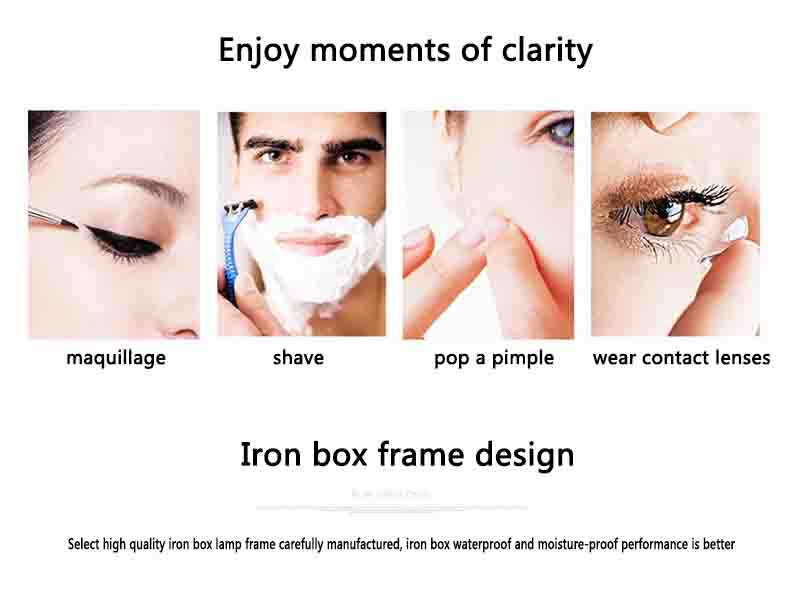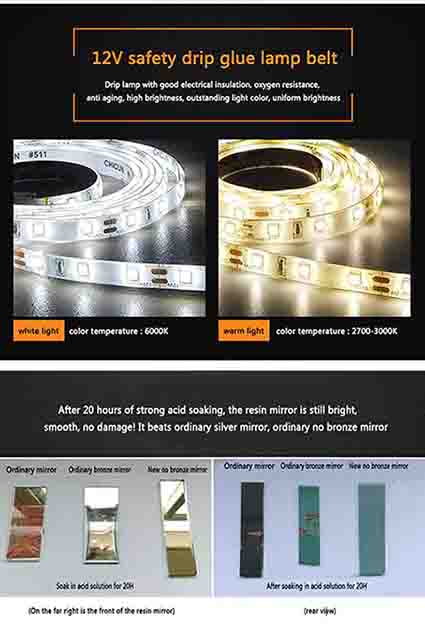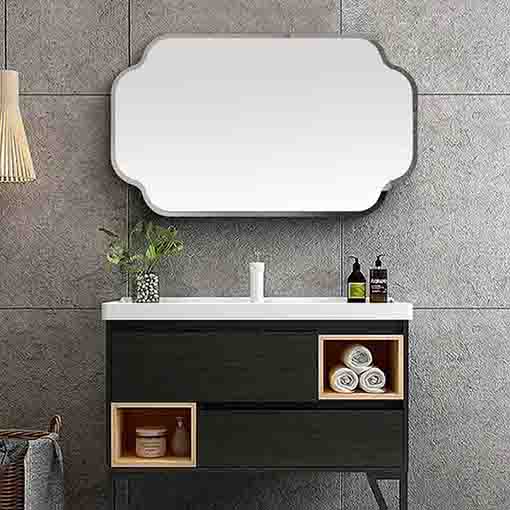Privacy Concerns and Solutions in Smart Mirror Design
Privacy Concerns and Solutions in smart mirror Design
In the era of rapid technological advancement, smart mirrors have emerged as a revolutionary addition to our daily lives. Companies like Hiking Glass, with its innovative products accessible at www.hikinglass.com, are at the forefront of this trend. However, along with the convenience and functionality that smart mirrors offer, privacy concerns have become a significant issue that needs to be addressed.
Privacy Concerns in Smart Mirror Design
Data Collection and Storage

Smart mirrors are equipped with various sensors, such as cameras, microphones, and proximity sensors. These sensors collect a vast amount of data, including personal appearance details, conversations, and daily routines. Hiking Glass, like many other companies in the field, needs to be cautious about how this data is collected. For instance, if the camera on a smart mirror is always active, it could potentially capture private moments without the user's consent. The storage of this data is also a major concern. If not properly secured, hackers could gain access to this sensitive information, leading to privacy breaches.
Third - Party Sharing
Another privacy concern is the potential sharing of user data with third - parties. Hiking Glass, while developing its smart mirrors, may have partnerships with other companies for various services, such as data analytics or advertising. If user data is shared without clear and explicit consent from the users, it can violate their privacy. For example, personal information about a user's skincare routine collected by the smart mirror could be sold to a cosmetics company for targeted marketing, without the user even being aware of it.
Lack of User Control

Many smart mirror users feel that they have limited control over the data collected by these devices. At Hiking Glass, it's important to note that some users may not fully understand how to manage the privacy settings of their smart mirrors. If the options to disable sensors or limit data collection are buried deep within complex menus, users may not be able to protect their privacy effectively. This lack of user - friendly privacy controls can lead to a sense of unease among consumers.
Solutions in Smart Mirror Design
Transparent Data Policies
Hiking Glass can take the lead by implementing transparent data policies. By clearly stating on its website, www.hikinglass.com, what data is being collected, how it is used, and with whom it may be shared, users can make informed decisions. For example, the company could have a dedicated page on its website that details the data collection process for each feature of the smart mirror. This transparency builds trust with the users, as they know exactly what to expect from the device.
Robust Security Measures
To protect user data from hackers, Hiking Glass should invest in robust security measures. This includes using encryption techniques to safeguard data both during transmission and storage. For instance, when data is sent from the smart mirror to the company's servers, it should be encrypted so that even if intercepted, it cannot be easily deciphered. Additionally, regular security audits and updates should be carried out to ensure that the smart mirror's software remains secure.
User - Centric Privacy Controls

Hiking Glass needs to design user - centric privacy controls. The smart mirror should have an intuitive interface that allows users to easily manage their privacy settings. For example, users should be able to quickly turn off the camera or microphone with a single click. These controls should be easily accessible from the main menu of the smart mirror, ensuring that users have full control over their privacy at all times.
Anonymous Data Aggregation
When using data for analytics purposes, Hiking Glass can consider anonymous data aggregation. Instead of using individual user data, the company can collect and analyze data in a way that does not identify specific users. This way, the company can still gain insights to improve its products and services, while protecting the privacy of its users. For example, instead of knowing which specific user has a particular skin condition, the data can be aggregated to show trends across a large group of users.
In conclusion, while smart mirrors offer exciting possibilities, privacy concerns must be addressed. Companies like Hiking Glass, with its presence at www.hikinglass.com, have a responsibility to ensure that user privacy is protected. By implementing transparent data policies, robust security measures, user - centric privacy controls, and anonymous data aggregation, Hiking Glass can lead the way in creating smart mirrors that are both innovative and privacy - friendly. As technology continues to evolve, maintaining a balance between functionality and privacy will be crucial for the success of smart mirror manufacturers.
 English
English Russian
Russian




